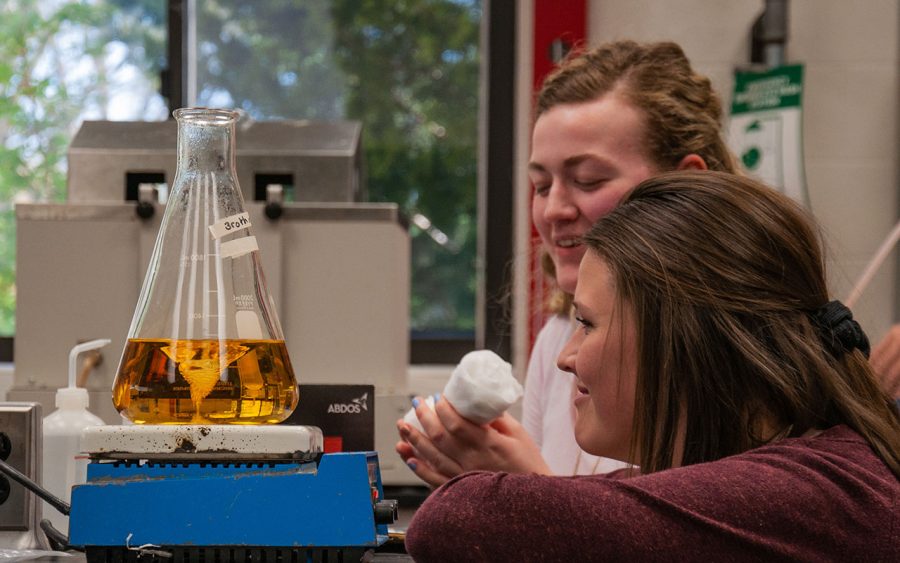Three interdisciplinary concentrations focusing on biotechnology will be added to the biology program in the fall of 2020.
Dr. Vincenzo Antignani, a member of the biology faculty, said these concentrations resulted from a need to bridge the gap between the skills needed for jobs in the biomedical field and the skills taught at BJU. “We’re trying to reduce the gap between the skills that we produce and the skills that are needed,” Antignani said.
The three concentrations include biomedical research, biomechanics and environmental technologies. Biomedical research will train students who intend to go into the medical field as researchers rather than doctors. This concentration combines the cell biology and premed programs.
Biomechanics will combine the fields of biology and engineering to teach students to study biological systems, such as mechanical objects.
Environmental technologies and resources will combine the studies of zoo and wildlife biology and molecular biology. Students will learn how to use natural resources with new technology, such as improving methods of deriving medicine from plants.
Antignani said the main change with the new concentrations will be more structure. Students will be given fewer opportunities for electives, and they will do more independent study or undergrad research credits, jumping from two to four credits to four to six credits.
Internships can count for some of these credits. “The emphasis is on experiential learning opportunities,” Antignani said.
Students in all three concentrations will take Introduction to Biotechnology, a career class focused on helping students know what area of biology they want to focus on. Antignani said that the class will explore a variety of careers, including cancer research, applied chemistry, biomimicry and biological control.
The class will include lectures, guest speakers from the industry and field trips to professional organizations. “The goal of the class is to expose all the students who come into the biotech core . . . [to] the different options that [they] have in the biotechnology area,” Antignani said.
Antignani said the quality of education will remain the same after the concentrations are added. “Their rigor is just the same rigor that we have in the existing ones,” Anitgnani said.
The goal is to improve the connection between students and professionals in the life science sector. “We want to try to connect our students while they go through college,” Antignani said. Many companies in the life science sector have relocated to South Carolina in the past six years, growing the job market.
With the shift in industry, BJU reviewed its programs, interviewing industry professionals. Antignani said after the interviews, they found that companies look for interdisciplinary skills.
“We’re just trying to navigate the wave, the trend of the growing market in the life science industry, which is growing globally,” Antignani said.
























































